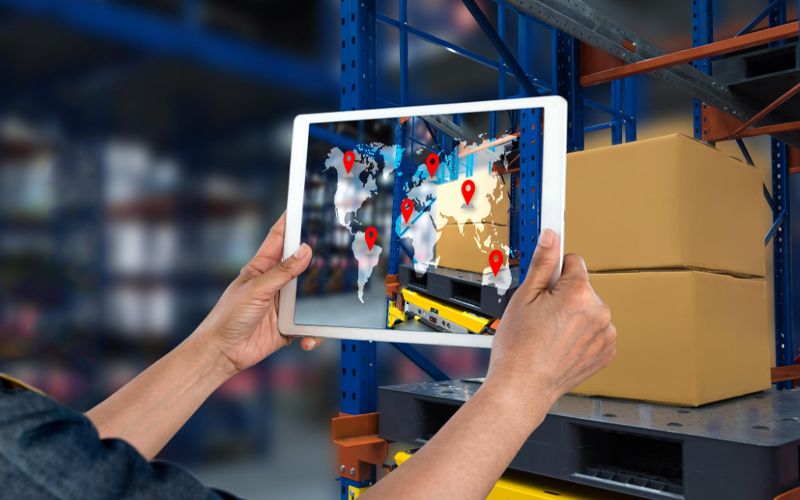Autonomous vehicles (AVs) are no longer a thing of the future; they’re already changing the way goods are moved and delivered. From autonomous delivery vehicles driving through city streets to self-driving trucks handling long-distance routes without human intervention, autonomous logistics is becoming a reality. This shift is opening up new and exciting business opportunities across the supply chain.
The shift toward autonomous logistics
Traditional logistics models are facing big challenges. From labour shortages to rising e-commerce demands, the need for faster, more reliable service is pushing the logistics industry to adopt smarter, more automated solutions. Autonomous vehicles in logistics are being positioned as the solution to many of these challenges. With advanced sensor systems, machine learning algorithms, and real-time data processing, these vehicles are enabling a new generation of logistics operations that run 24/7 with minimal human intervention.
Autonomous logistics refers not just to self-driving trucks but to an entire ecosystem, drones, robotic last-mile couriers, and AI-powered dispatch systems, that collectively streamline the movement of goods from origin to destination.
Autonomous trucking: Redefining long-haul freight
Autonomous trucking technology enables self-driving trucks to operate continuously without breaks, significantly reducing transit times and boosting fleet productivity. With the help of LIDAR, radar, and GPS systems, these trucks can safely navigate highways, adjust to traffic conditions, and even avoid collisions better than many human drivers.
By automating long-haul routes, logistics providers can address the driver shortage problem, lower fuel consumption through optimised driving patterns, and reduce operational downtime. Human drivers may still be needed for local deliveries or complex urban manoeuvres, but the bulk of the journey can be efficiently handled by autonomous systems, making long-haul freight more scalable and reliable.
Autonomous delivery vehicles: Reshaping the last mile
The last mile or the final leg of delivery from hub to doorstep accounts for a significant portion of total logistics costs. Autonomous delivery vehicles offer a compelling solution. These small, driverless units, ranging from sidewalk robots to delivery vans, are already being piloted in cities around the world.
Their benefits include reduced labour costs, enhanced delivery speed, and the ability to operate around the clock. For consumers, these vehicles offer the promise of real-time tracking and contactless delivery. For businesses, they unlock efficiencies in dense urban environments where traditional delivery methods are costly and time-consuming.
Creating new business models and opportunities
The adoption of autonomous vehicles in logistics is a catalyst for entirely new ways of doing business. Here are several areas where innovation is emerging:
- Logistics-as-a-service (LaaS): Companies can outsource transport functions to autonomous fleet operators. Instead of investing in vehicles, warehouses can rely on a pay-per-use model that’s flexible and scalable.
- Hyperlocal delivery startups: Entrepreneurs can enter the market with lightweight, electric, autonomous delivery vehicles targeting specific neighbourhoods or business districts, particularly useful for food delivery, retail parcels, or healthcare supplies. vData monetisation: Autonomous vehicles generate massive amounts of data on traffic patterns, delivery times, and system performance. This data can be analysed and monetised for use in route optimisation software, predictive maintenance tools, or city planning.
- Green logistics solutions: With many autonomous delivery vehicles designed to be electric, there’s a strong alignment with sustainability goals. Companies can significantly lower emissions while benefiting from government incentives for eco-friendly logistics solutions.
- Fleet management platforms: Software providers can build platforms that support route optimisation, diagnostics, and performance analytics tailored specifically to autonomous fleets. This opens the door to SaaS business models catering to logistics providers.
- Integration with public transport for urban mobility: One of the most innovative business opportunities is the integration of autonomous vehicles with public transit systems. These vehicles can serve as first-mile and last-mile solutions, shuttling passengers or packages to and from bus stops, train stations, and urban transit hubs.
Challenges on the road ahead
While the promise of autonomous logistics is compelling, significant challenges remain:
- Regulatory barriers: Autonomous vehicles are subject to a patchwork of regulations that vary widely by region, slowing global scalability.
- Technical limitations: AV systems still struggle with unpredictable urban scenarios, adverse weather, and complex decision-making in real time.
- Cybersecurity threats: As AVs become increasingly connected, they are more vulnerable to hacking, data theft, and software malfunctions.
- Infrastructure gaps: Successful deployment requires smart infrastructure, including vehicle-to-everything (V2X) communication and dedicated lanes or drop-off points for AVs.
Overcoming these barriers will require coordinated efforts between governments, private companies, and technology providers. Investment in R&D, infrastructure, and policy frameworks will be essential to supporting the widespread adoption of autonomous logistics systems.
How can Infosys BPM help you navigate the shift to autonomous logistics?
The rise of autonomous vehicles in logistics marks a turning point for the industry. Companies that embrace this shift early, experiment with hybrid models, and invest in the supporting technology will be well-positioned to lead in a competitive, rapidly evolving logistics landscape. The road ahead is autonomous and full of opportunity.
Infosys BPM offers tailored solutions that leverage cutting-edge technologies to transform logistics operations, ensuring agility and resilience in a rapidly evolving market. Embrace the future of logistics with Infosys BPM and drive your business towards growth and innovation.




